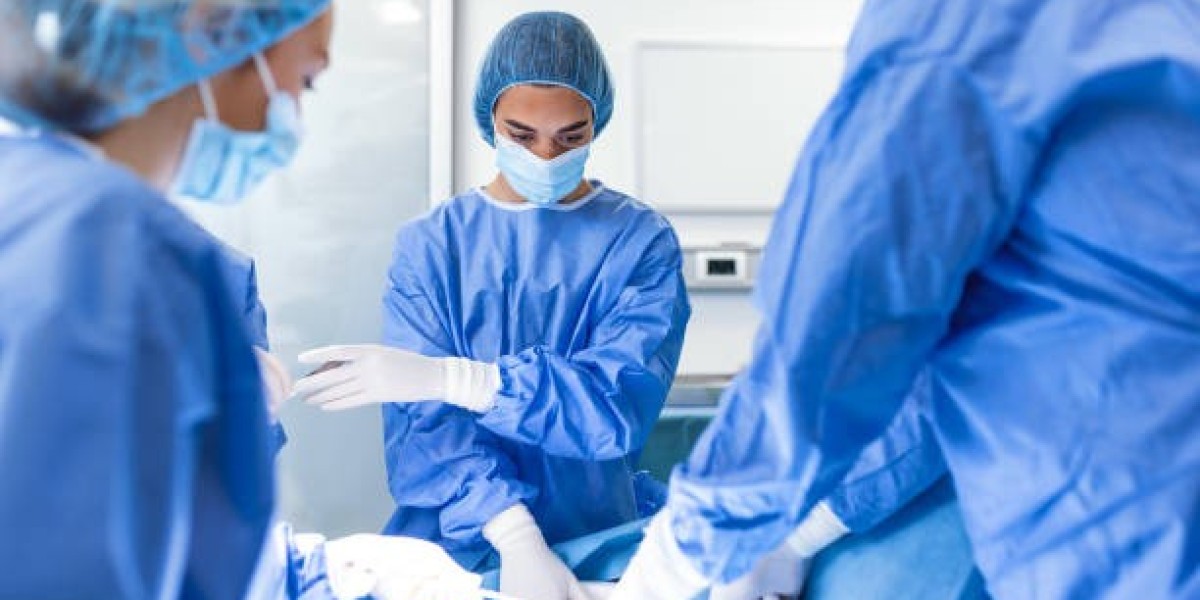Undergoing plastic surgery is a significant decision that requires careful planning, not only before the procedure but also during the recovery phase. The healing process is crucial for achieving the best possible results and minimizing complications. This comprehensive guide will provide expert advice on how to navigate your recovery journey effectively after plastic surgery in Riyadh, helping you heal smoothly and safely.
Understanding the Importance of Recovery After Plastic Surgery
Recovery is as important as the surgery itself. While the procedure addresses physical changes, the body needs time and care to heal properly. Proper recovery reduces the risk of infection, swelling, and scarring, and ensures that the surgical results last longer. Whether you have undergone a facelift, breast augmentation, liposuction, or any other cosmetic procedure, following the right post-operative care steps is essential.
The process of plastic surgery in riyadh involves advanced techniques and expert surgeons, but the patient’s role in recovery cannot be overstated. Your commitment to following aftercare instructions directly impacts your healing timeline and overall satisfaction with the results.
Key Tips for a Smooth Plastic Surgery Recovery in Riyadh
Follow Your Surgeon’s Instructions Meticulously
Your surgeon will provide personalized post-operative guidelines tailored to your specific procedure. These instructions cover wound care, medication schedules, activity restrictions, and signs of complications to watch for. Adhering strictly to these directions is the cornerstone of a successful recovery.
Ignoring or deviating from these instructions can lead to delayed healing, infections, or unsatisfactory aesthetic outcomes. Always clarify any doubts with your healthcare provider before leaving the clinic.
Prioritize Rest and Controlled Mobility
Rest is vital, but complete immobility is not recommended. Gentle movement, such as walking several times a day, helps improve blood circulation, reduce swelling, and prevent blood clots, which are serious post-surgical risks. However, avoid strenuous activities, heavy lifting, or intense exercise for the period advised by your surgeon.
For example, after many procedures, patients are advised to avoid heavy lifting and running for at least two weeks. Elevating the operated area while resting or sleeping can also reduce swelling and discomfort.
Maintain Proper Wound Care and Hygiene
Keeping your incision sites clean and protected is essential to prevent infection. Wash your hands before touching the area and follow your surgeon’s guidance on cleaning the wounds. Avoid applying makeup, creams, or skincare products on healing incisions until fully healed.
Protecting your skin from direct sunlight and avoiding smoking or exposure to second-hand smoke further supports tissue repair and reduces complications.
Use Compression Garments When Recommended
Compression garments are often prescribed to support the surgical area, reduce swelling, and help the skin conform to new contours. Wearing these garments as directed can significantly enhance recovery and improve final results.
Eat a Balanced, Nutritious Diet and Stay Hydrated
Nutrition plays a critical role in healing. Focus on a diet rich in protein, vitamins, and minerals, which support tissue repair and immune function. Drinking plenty of water helps flush out toxins and maintain skin elasticity.
Avoid foods high in salt or caffeine, as they can contribute to swelling and dehydration.
Monitor Your Body and Report Any Unusual Symptoms
Be vigilant about changes such as excessive redness, swelling, discharge, or severe pain at the surgical site. These could be signs of infection or other complications requiring immediate medical attention.
Regular follow-up appointments with your surgeon are important to track your progress and address any concerns promptly.
Common Recovery Challenges and How to Overcome Them
Managing Swelling and Bruising
Swelling and bruising are normal after plastic surgery but can be minimized by elevating the affected area, applying cold compresses as advised, and avoiding activities that increase blood pressure.
Coping with Discomfort and Pain
Pain levels vary depending on the procedure, but prescribed medications and proper rest usually manage discomfort effectively. Avoid over-the-counter blood thinners unless approved by your surgeon, as they can increase bleeding risks.
Emotional and Psychological Well-being
Recovery can be emotionally challenging due to temporary changes in appearance and physical limitations. Staying connected with supportive friends or family and maintaining realistic expectations helps maintain a positive mindset.
Why Patience Is Essential in Your Recovery Journey
Plastic surgery is real surgery, and the body requires adequate time to heal fully. Rushing back into normal activities too soon can jeopardize your results and increase the risk of complications. Patience, combined with careful adherence to recovery protocols, ensures the best long-term outcomes.
Many patients find that gradual reintroduction of physical activities, scar care routines like moisturizing and gentle massage, and ongoing sun protection contribute to smoother healing and improved aesthetic results.
Conclusion
Recovering from plastic surgery in Riyadh is a critical phase that demands attention, care, and patience. By following your surgeon’s advice, maintaining healthy habits, and monitoring your healing process, you can enjoy a smooth recovery and achieve the aesthetic goals you desire. Remember, the journey doesn’t end with the surgery—it continues through your commitment to proper recovery.
FAQs
How soon can I resume normal activities after plastic surgery in Riyadh?
Recovery times vary by procedure, but generally, light activities can resume within days, while strenuous exercise and heavy lifting should be avoided for at least two weeks or as advised by your surgeon.
What are the signs of infection I should watch for during recovery?
Look for increased redness, swelling, warmth, unusual discharge, fever, or severe pain at the surgical site. If any of these occur, contact your surgeon immediately.
Can I use skincare products or makeup during my recovery?
It is best to avoid applying makeup or skincare products on or near incision sites until they are fully healed to prevent irritation and infection.
How important is nutrition in the healing process?
Nutrition is vital. A balanced diet rich in protein, vitamins, and hydration supports tissue repair and overall recovery.
Will I need to wear compression garments after surgery?
Many procedures require compression garments to reduce swelling and support healing. Follow your surgeon’s instructions on how long and when to wear them.
This blog content is designed to be engaging and informative, addressing the overall user intent for those interested in plastic surgery in Riyadh and specifically focused on recovery advice for a smooth healing process.






